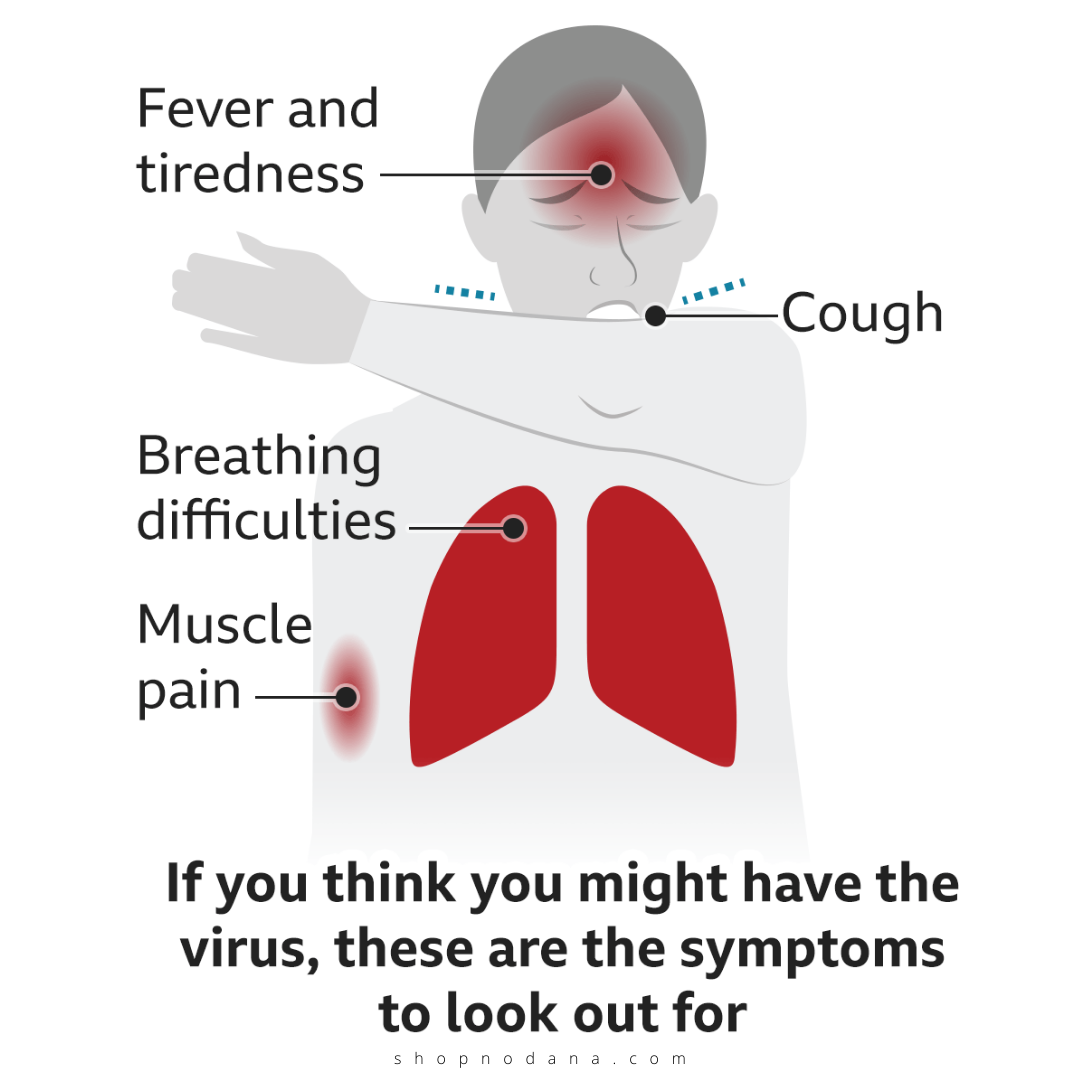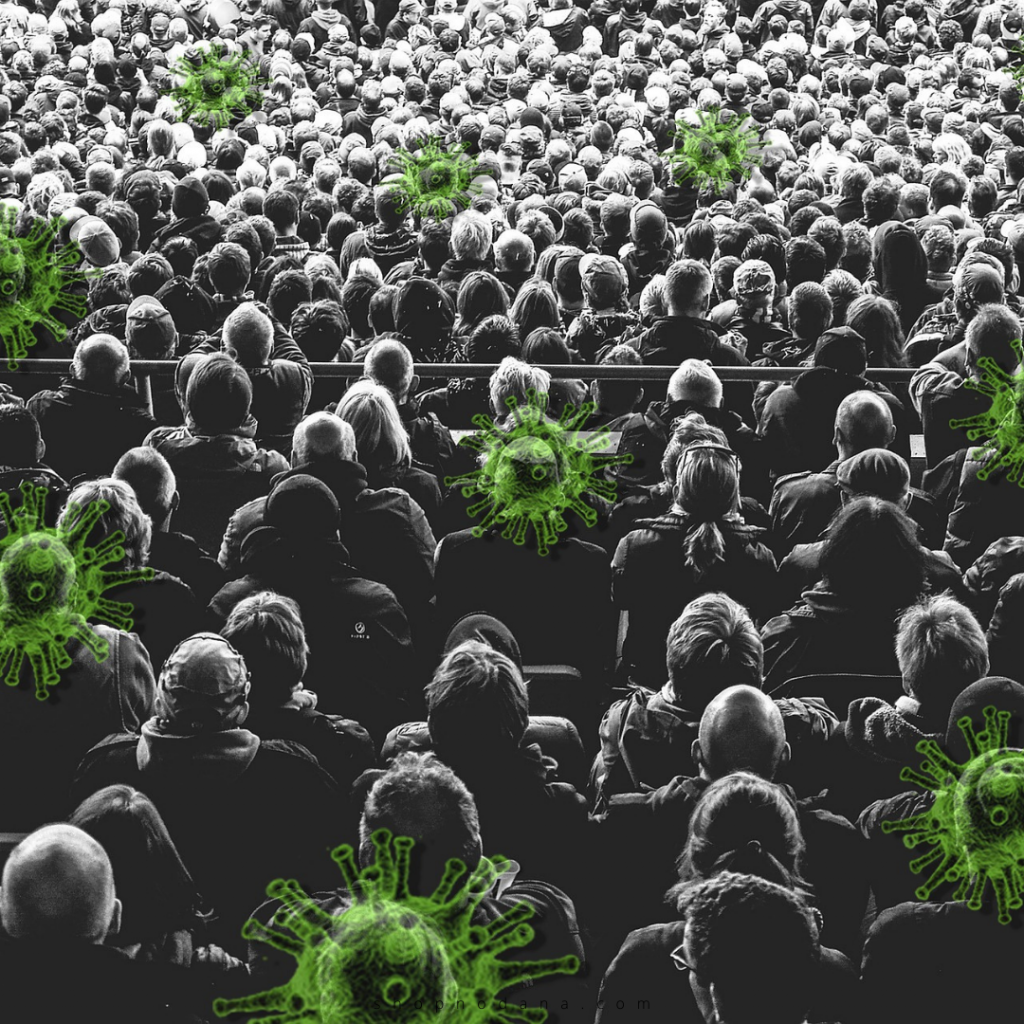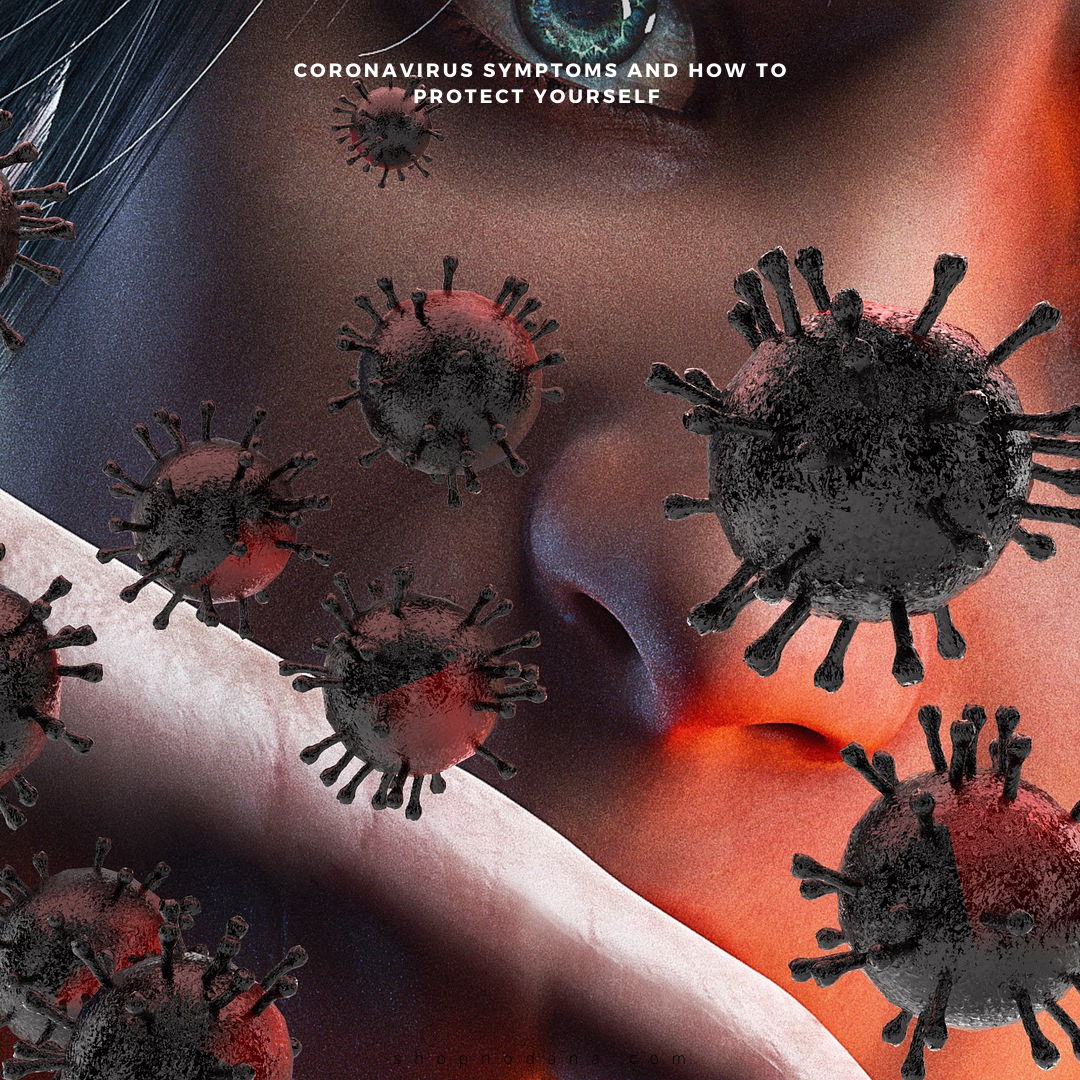Coronavirus Symptoms And How To Protect Yourself From It
The Coronavirus continues to spread worldwide and has caused more than 355,000 deaths so far, while confirmed infections have exceeded 5 million and a half million cases.
Some studies indicate that about 80 percent of people infected with the virus feel mild symptoms or have no symptoms at all, but a few others may have severe symptoms.
Are you experiencing symptoms of a new COVID-19 virus or just a cold? This question arises with the escalation of fears of a pandemic that appeared in China and the number of its injuries exceeded 68 thousand, while the number of deaths reached 1665, mostly in the central province of Hubei.
According to the WHO website, coronaviruses are a large group of viruses that cause disorders ranging from colds to more severe diseases, such as the Middle East Respiratory Syndrome (MERS) and severe acute respiratory syndrome (SARS).
The new Coronavirus “COVID 19” is a new strain that has not been identified in humans.
What is Coronavirus (Covid-19)?
Coronaviruses are a large group of viruses that can infect both animals and humans, as they cause respiratory illnesses, whether they are mild as colds or as severe as pneumonia. Animal Corona Viruses rarely infect humans and then spread among them. You may remember SARS (Severe Acute Respiratory Syndrome) that spread between 2002-2003, which was an example of the Coronavirus, which was transmitted from animals to humans. Another prominent new strain of the Coronavirus called MERS (respiratory syndrome of the Middle East) appeared in the Middle East in 2012, and scientists say it initially passed from a camel to a human.
What are the symptoms of emerging coronavirus (Covid-19)?
The Center for Disease Control and Prevention notes that symptoms of the new coronavirus include “high fever and symptoms that indicate disease of the lower respiratory tract (such as coughing and difficulty breathing).” Avoid mixing with a person suspected of contracting the virus.
Coronavirus symptoms
Coronavirus infects the lungs, and major symptoms are fever and persistent dry cough.
The British National Health Service says that “dry cough” means crusting cough that is not accompanied by any expectoration (thick mucus).
A persistent cough means a prolonged and prolonged cough for more than an hour or three or more coughing episodes within 24 hours. If you usually have a cough, the situation may be worse than usual.
This also leads to shortness of breath, which is often described as severe chest tightness, difficulty breathing, or a feeling of suffocation.
The person feels fever if his temperature exceeds 37.8 degrees Celsius, as this leads to a feeling of warmth, cold, or tremor.
Sore throat, headache, and diarrhea have also been reported, as well as a loss of smell and taste.
It takes an average of five days for symptoms to start to develop, but some people develop it later. The World Health Organization says the incubation period is up to 14 days.
How to save money during shopping
What do I do if I get coronavirus symptoms?
Most people with coronavirus recover after resting and relieving pain (such as taking paracetamol, also known as acetaminophen).
If you have a fever, cough, and trouble breathing, you should consult a doctor because this may be due to a respiratory infection or another serious medical condition.
The WHO says that you should contact in advance and speak to a health care provider in your area because it may help you go to the right place.
How many people did not show any coronavirus symptoms?
A recent study published in a British medical journal indicated that 78 percent of people with coronavirus (Covid-19) show slight or no symptoms (“asymptomatic”, according to the medical designation).
The results of the study are consistent with research conducted in an Italian village that is a hotbed of disease outbreaks, and it was found that 50 percent to 75 percent of patients are asymptomatic, but they are “a great source” of infection
When do I need to go to the hospital for coronavirus treatment?
Difficulty breathing is a major reason why someone needs hospital treatment.
Doctors are examining the lungs to see how they are most likely affected, and more severe cases may need to be transferred to intensive care units, medical wards specializing in treating people with severe illness.
Coronavirus patients receive oxygen support to help them breathe, which can involve using a face mask or passing a tube in the nose.
And doctors resort to the use of a ventilator with patients with severe danger, as the device works to push air and increase oxygen levels to the lungs through a tube passed from the mouth or nose or through a small hole in the throat.
What is the category most at risk of infection with the virus?
Coronavirus causes, in severe infections, pneumonia
The elderly and those with a previous medical history (such as those with asthma, diabetes, and heart disease) are at the highest risk for severe infection with the virus.
Men are also more likely to die from HIV infection than women.
The recovery period may take a few days to weeks in cases of minor injury, but if a person is transferred to the hospital, especially the intensive care unit, it may take months before the person feels recovered again.
I see a test result saying that the person is infected with the Coronavirus. Should I be concerned?
not necessary. The vast majority of coronavirus diagnostics will be equivalent to informing you that you have a cold or flu. Note that the term “coronavirus” covers a wide range of viruses. Having a positive result when examining the Coronavirus is not a cause for concern. This can be very confusing, so please work with your doctor or care team if you find that you have this type of virus.
How does the Coronavirus spread?
The virus usually spreads to people through coughing and sneezing, or when a person touches an infected person or touches an infected surface and then the mouth, nose, or eyes.
22 Cheap foods that last a long time without refrigeration
How can it help people prevent the spread of the disease?
The Centers for Disease Control and Prevention (CDC) recommends good personal hygiene practices, including frequent washing of hands, drinking plenty of fluids, covering the nose and mouth with a tissue or elbows when coughing, and staying home if you feel sick. Additionally, even when you are not sick, we advise you to stay at home unless you need to go out of necessity and practice social spacing (staying at least six feet away from others).
What does self-isolation mean?
Self-isolation is an important measure applied by people with Covid-19 symptoms to avoid transmitting the infection to others in the community, including family members.
What is meant by self-isolation is when a person with a fever, cough, or other coronavirus symptoms obliges his home and refrains from going to work, school, or public places. This isolation can happen voluntarily or based on a recommendation from a healthcare provider. But if you live in an area where malaria or dengue fever is common, you should not ignore the symptoms of fever. Seek medical help. When you go to the health care facility, put a muzzle if possible, keep at least 1 meter (3 feet) between you and others, and avoid touching the surfaces around your hands. If the patient is a child, help them adhere to these tips.
If you do not live in an area where malaria or dengue fever is common, please follow these tips:
– If a person is in self-isolation, the reason is that he feels unwell without his illness being severe (that is, does not warrant medical attention)
- Choose for insulation a spacious, well-ventilated separate room with a toilet and hand hygiene supplies.
- If there is no separate room, separate the beds from at least one meter.
- Keep at least 1 meter away from others, including your family.
- Monitor your symptoms on a daily basis.
- Isolate yourself for 14 days, even if you feel healthy.
- If you experience symptoms of difficulty breathing, consult your doctor immediately, and call first if possible.
- Stay positive and energetic by staying in touch with your loved one on the phone or online, or doing some exercise at ho
Can Covid-19 disease be treated?
There is no vaccine for this virus; Since it is a virus, antibiotics will not help with it. Without any specific treatment available, health care providers generally treat the symptoms and help the patient feel more comfortable.
What are the signs that compel people to seek medical care?
If you or your child have a fever, cough, or breathing difficulties, seek medical attention immediately. If you suspect Covid-19 disease, contact your doctor or emergency department before you visit it so that the facility ensures that no one else will be exposed to the virus, if you actually have it.
How fast is the virus spreading?
Thousands of new cases are reported daily around the world, and there is a belief that health authorities are not likely to realize many cases, and that they are not prepared to carry out infection detection tests for large numbers of people.
The virus had started to circulate in China, and soon spread to countries such as South Korea, Italy, and Iran. Recently, cases were recorded in many Arab countries, along with thousands of cases in the United States and Spain.
With the rapid spread of cold and influenza in the winter, some hope that the epidemic will subside as the seasons shift and temperatures rise, but scientists have not yet proven that the epidemic has been affected by heat.
Domestic isolation for those who show symptoms of the disease, or for a family member, can limit the spread of the epidemic
How long will the coronavirus last on different surfaces?
The most important thing to know about the presence of coronavirus on surfaces is that it can be easily disinfected with ordinary household sterilization solutions that kill the virus. Studies have shown that the virus that causes Covid-19 can remain on plastics and stainless steel for 72 hours, on copper for less than 4 hours, and on cardboard (carton) for less than 24 hours.
As usual, clean your hands well by rubbing them with an alcohol-based hand sanitizer or washing them with soap and water. Avoid touching your eyes, mouth, or nose.
How to wash fruits and vegetables?
Fruits and vegetables are an important component of any healthy diet. They should be washed as you would under normal conditions: before touching vegetables and fruits, wash your hands thoroughly with soap and water. Then wash it well with clean running water, especially if you eat it raw.
How long does a hand sanitizer last on your skin?
How do I protect myself from coronavirus?
The best thing is to wash your hands frequently and in a comprehensive manner, preferably washing with soap and water.
Coronavirus spreads when an infected person coughs or sneezes in a manner that spreads the virus-filled aerosol in the air, a person breathes, or causes infection if you touch a surface where this spray has fallen, then touches your eyes, nose, or mouth.
So it is extremely important to use tissue during coughing and sneezing, and not to touch the face with unwashed hands while avoiding close contact with infected people.
People are a source of infection if they develop coronavirus symptoms, but some may spread the virus even before the illness.
Medical experts say that face masks do not provide effective protection.
However, WHO is reviewing whether people can benefit from its use, as it is able to contain a spray containing the virus and prevent the risk of spreading to surfaces and infecting people.



